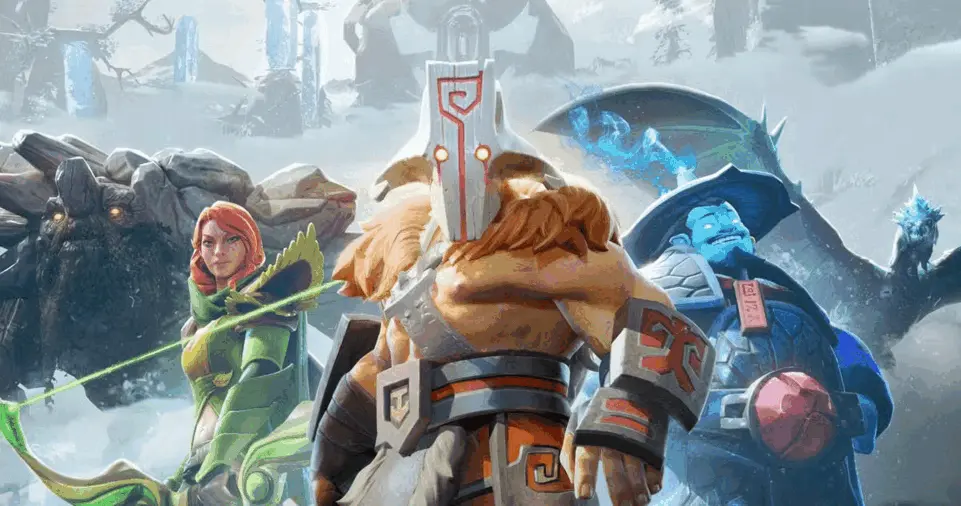Create and Share Your Own Game Mods: The world of gaming is continuously evolving, and one of the most exciting aspects of modern games is their ability to be modified by players.
Game mods and custom content allow players to enhance their favorite games by introducing new features, characters, mechanics, textures, and storylines.
Whether you want to tweak game physics, add new items, or create entirely new levels, modding opens up endless possibilities.
Additionally, sharing your mods with the gaming community can help you gain recognition, collaborate with other developers, and even monetize your creations.
Game modding has grown significantly over the years, with popular games like Minecraft, The Elder Scrolls V: Skyrim, and Grand Theft Auto V boasting massive modding communities.
Many developers even encourage modding by providing official tools and platforms to share modifications.
If you’re looking to get started with modding but don’t know where to begin, this comprehensive guide will walk you through the process, from choosing the right game to creating, testing, and sharing your custom content.
Choosing a Game That Supports Mods
Why Selecting the Right Game Matters
Not all games support modding, so the first step is to choose a game that allows customization.
Games with active modding communities provide better support, tools, and tutorials to help you get started.
Some developers provide official modding software, while others rely on community-developed tools.
Popular Mod-Friendly Games
Here are some of the most mod-friendly games with strong community support:
- Minecraft – Java Edition supports extensive modding using Forge, Fabric, and custom code.
- The Elder Scrolls V: Skyrim – One of the most modded games with a vast range of tools like the Creation Kit.
- Grand Theft Auto V (GTA V) – Features modding tools like Script Hook V and OpenIV.
- The Sims 4 – Supports custom content, including skins, objects, and gameplay mods.
- Stardew Valley – Allows modifications via SMAPI (Stardew Modding API).
- Counter-Strike: Global Offensive (CS:GO) – Offers customization for maps, skins, and game mechanics.
- Fallout Series – Uses the Creation Kit, similar to Skyrim, to create new weapons, characters, and quests.
If you’re new to modding, start with a game that has a well-documented modding community, as it will make learning the process easier.
Learning the Essential Modding Tools
Understanding Modding Software and Tools
Every game requires specific tools for modding.
Some are official tools provided by developers, while others are third-party tools created by the community.
Learning to use these tools effectively is crucial for creating high-quality mods.
Popular Modding Tools and Their Uses
- Unreal Engine & Unity – Used for modding games built on these engines.
- Minecraft Forge or Fabric – Platforms that allow the creation of mods for Minecraft.
- Creation Kit – The official tool for modding Skyrim and Fallout games.
- Script Hook V & OpenIV – Essential tools for modifying GTA V.
- Nexus Mod Manager (Vortex) – A mod manager for Skyrim, Fallout, and other supported games.
- Modding APIs – Many games have their own APIs that help create and integrate mods smoothly.
Before diving into development, spend time understanding these tools and their functionalities by following online tutorials and documentation.
Learning Basic Scripting and Coding
Why Scripting Is Essential for Modding
While some mods only require graphical edits (like reskins and textures), most game modifications involve scripting.
Learning a few programming languages can significantly enhance your modding capabilities.
Programming Languages for Modding
- Java – Essential for modding Minecraft Java Edition.
- Python – Used for scripting in some indie games.
- Lua – A popular scripting language used in Roblox, Garry’s Mod, and CS:GO.
- C++ or C# – Used in Unreal Engine and Unity modding.
- Papyrus – Used for Bethesda games like Skyrim and Fallout.
Even if you’re creating visual mods, having a basic understanding of how the game loads assets and executes scripts will be beneficial.
Creating Your First Mod

Starting with Simple Mods
Beginners should start with small modifications to get familiar with the process.
Some easy beginner-friendly mods include:
- Changing textures or skins.
- Adjusting in-game settings, such as character speed or gravity.
- Adding simple items or weapons to the game.
- Replacing sound effects or background music.
Once you gain confidence, you can move on to more advanced modifications, such as adding new characters, quests, or gameplay mechanics.
Testing and Debugging Your Mod
Ensuring Compatibility and Stability
Before sharing your mod, it’s crucial to test it thoroughly to ensure:
- It functions as expected without crashes.
- It does not conflict with other popular mods.
- It is optimized for performance.
Using debugging tools and running your mod in a controlled environment will help you detect and fix issues before releasing it to the public.
Packaging and Sharing Your Mod
How to Properly Package Your Mod
Once your mod is complete, you need to package it correctly:
- Compress the mod files into a .zip or the required format.
- Include a README.txt file with installation instructions and mod details.
- Ensure all necessary files and dependencies are included.
Best Platforms for Sharing Mods
- Steam Workshop – The easiest way to distribute mods for Steam-supported games.
- Nexus Mods – A popular site for Skyrim, Fallout, and other game mods.
- ModDB – A general modding platform for various games.
- CurseForge – Primarily used for Minecraft mods.
- GTA5-Mods.com – A dedicated platform for GTA V mods.
- Itch.io – Allows modders to share their creations and even monetize them.
Engaging with the Modding Community
Building a Community Around Your Mods
Once your mod is live, you can:
- Get feedback – Encourage users to report bugs and suggest improvements.
- Update your mod – Fix issues and add new features over time.
- Collaborate with others – Join Discord servers, Reddit communities, and game modding forums to share knowledge and find new opportunities.
Monetizing Your Mods
Earning from Your Mods Legally
If your mod becomes popular, you can monetize it through:
- Patreon – Offer exclusive updates and early access to subscribers.
- Ko-fi – Accept one-time donations from supporters.
- Game Dev Marketplaces – Sell premium custom content.
However, always check the game developer’s policy on monetizing mods to avoid any legal issues.
Conclusion
Game modding is a fantastic way to unleash creativity, enhance gameplay, and build a reputation in the gaming community.
Whether you’re a beginner tweaking textures or an advanced modder developing new game mechanics, following the right steps will help you create and share successful mods.
With the right tools, knowledge, and community engagement, you can turn your passion for modding into a rewarding hobby—or even a career in game development!







